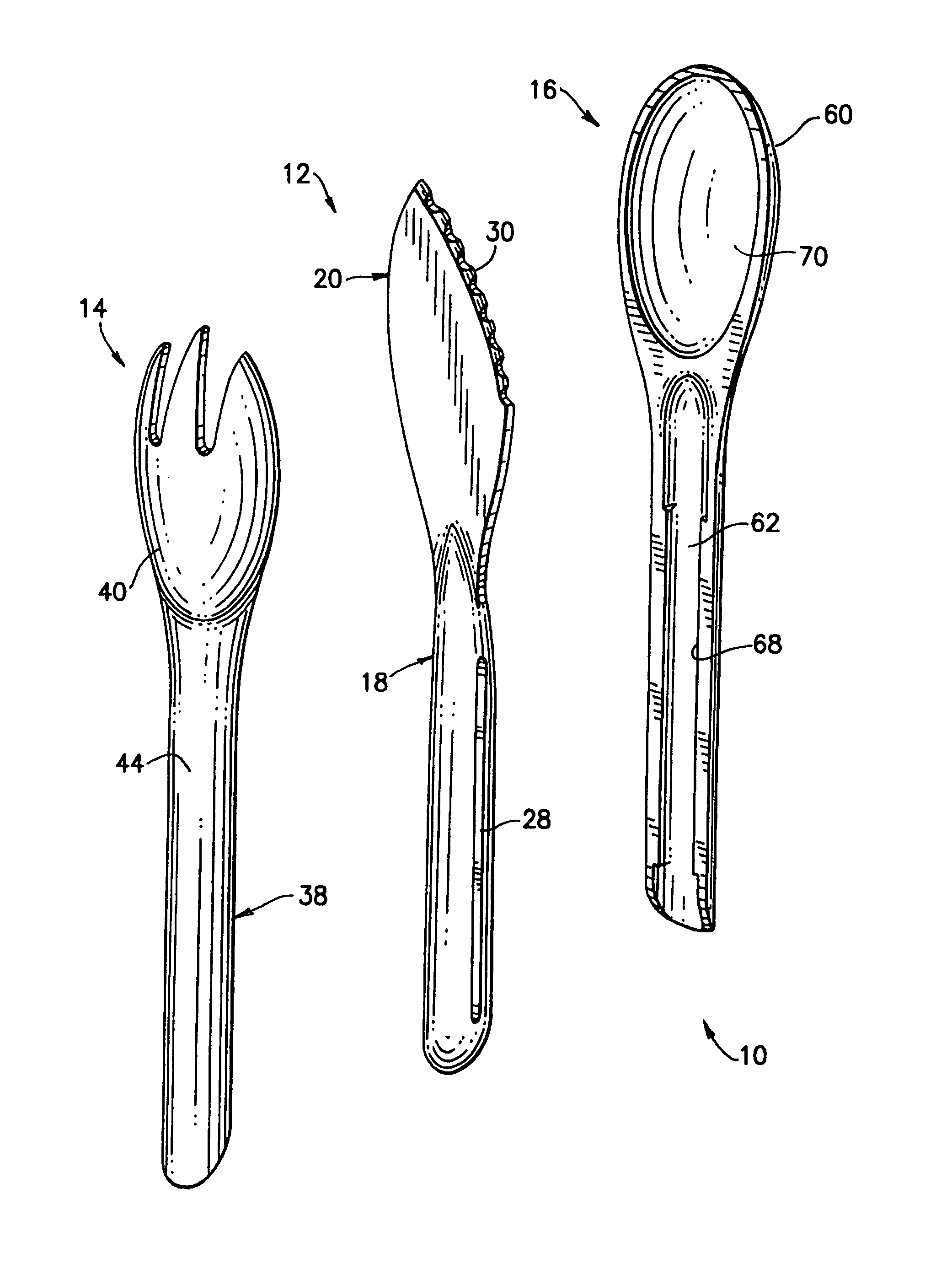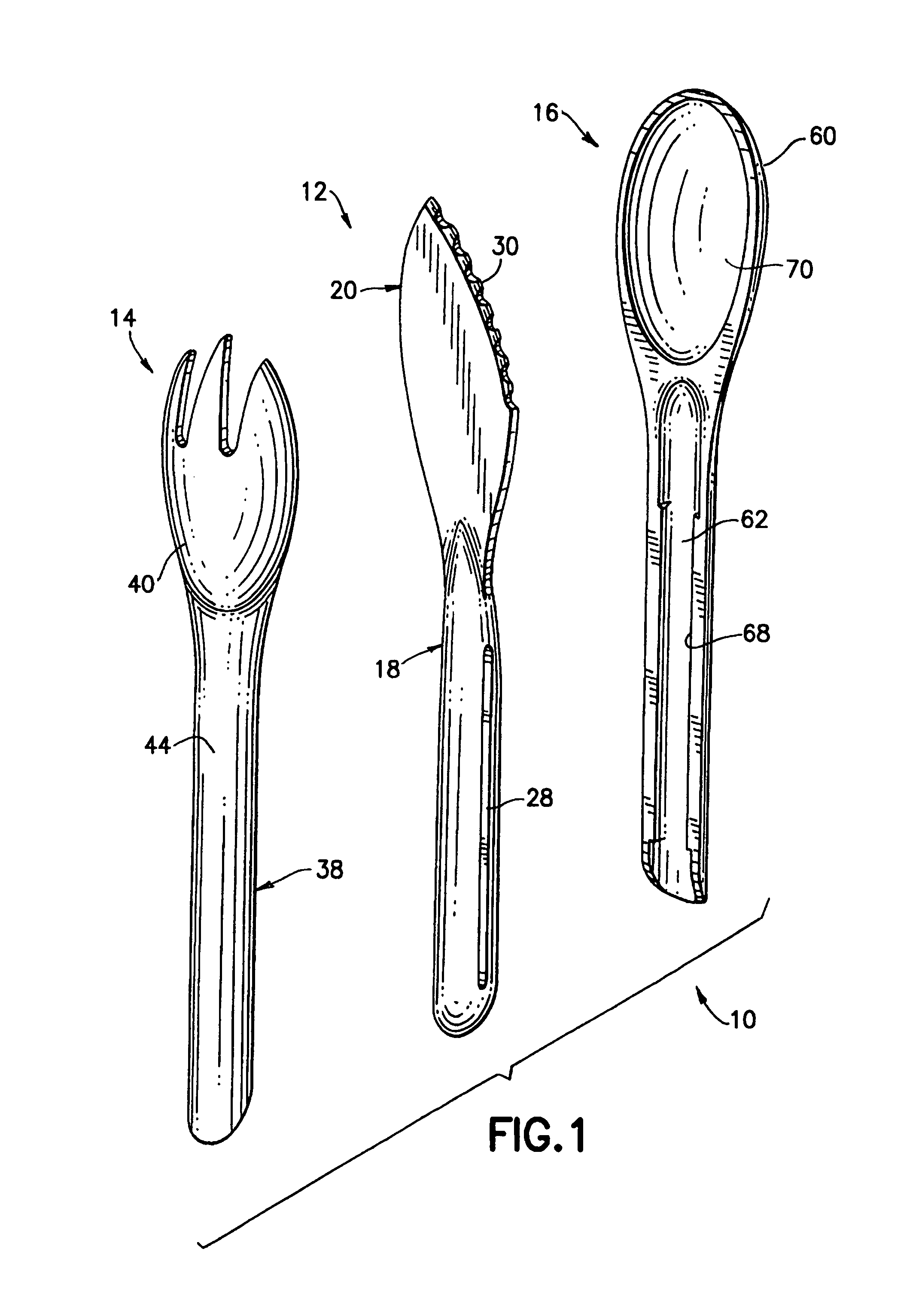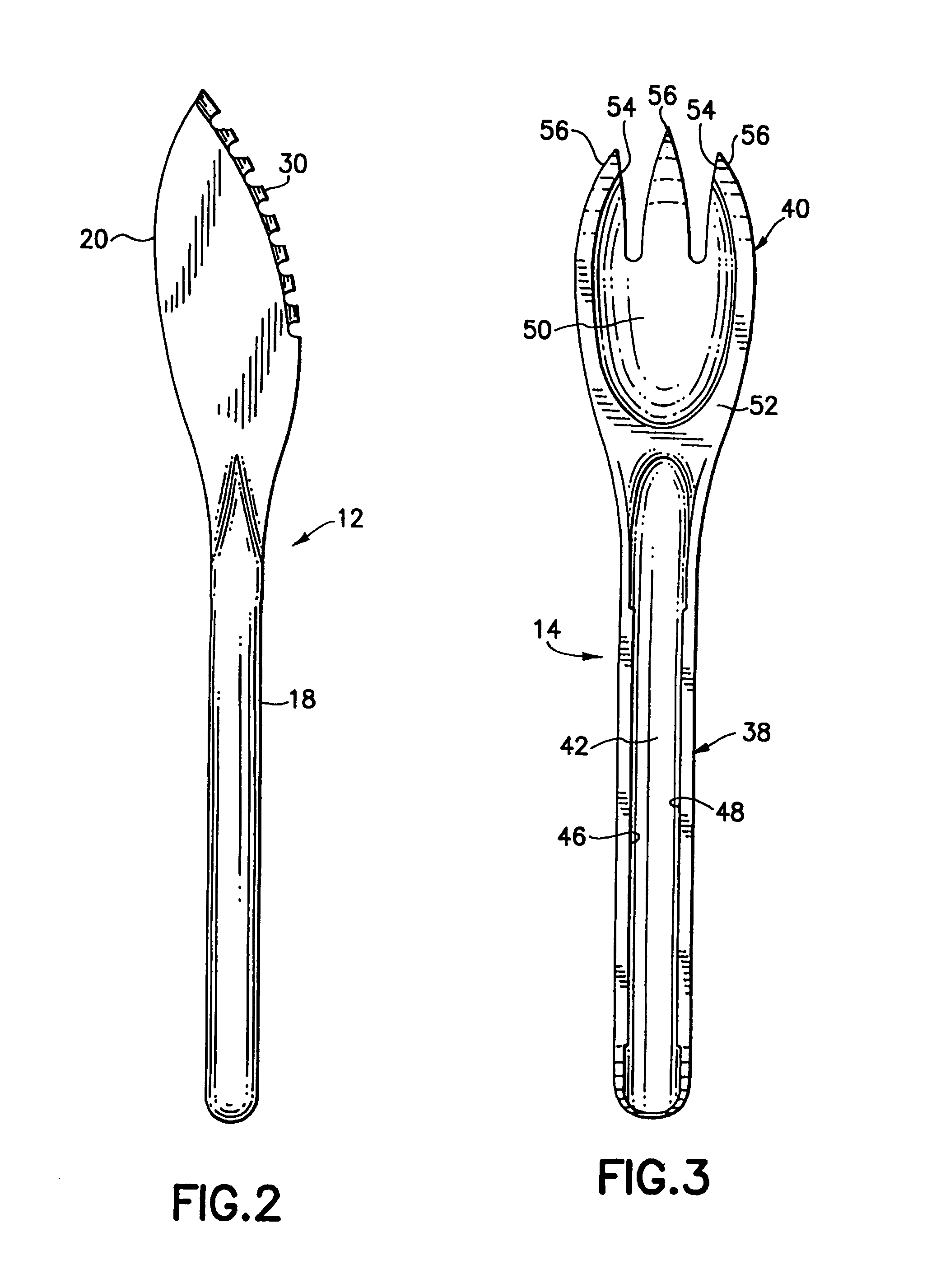Snap-together eating utensil assembly
a technology for eating utensils and utensils, which is applied in the field of eating utensils, can solve the problems of easy falling from the grip of the guest, cumbersome procedure, and complicated process, and achieve the effects of convenient handling, large surface area, and convenient gripping and manipulation
- Summary
- Abstract
- Description
- Claims
- Application Information
AI Technical Summary
Benefits of technology
Problems solved by technology
Method used
Image
Examples
Embodiment Construction
[0030]An eating utensil assembly in accordance with the subject invention is identified generally by the numeral 10 in FIG. 1. The assembly 10 includes a knife 12, a fork 14 and a spoon 16. The knife 12, fork 14 and spoon 16 each are formed unitarily from a thermoplastic and can be assembled together as shown in FIGS. 6–11 and 13.
[0031]The knife 12 includes an elongate handle 18 and a blade 20. The handle 18 is of elongate generally elliptical cross-section and is dimensioned to facilitate manual gripping and manipulation by a user. As shown most clearly in FIG. 12, the handle 18 of the knife 12 includes first and second generally semi-cylindrical halves 22 and 24 separated from one another by first and second grooves 26 and 28. The grooves 26 and 28 are substantially identical to one another and extend longitudinally along a major portion of the length of the handle 18. Thus, the grooves 26 and 28 are substantially coplanar and symmetrical about a plane disposed centrally between t...
PUM
 Login to View More
Login to View More Abstract
Description
Claims
Application Information
 Login to View More
Login to View More - R&D
- Intellectual Property
- Life Sciences
- Materials
- Tech Scout
- Unparalleled Data Quality
- Higher Quality Content
- 60% Fewer Hallucinations
Browse by: Latest US Patents, China's latest patents, Technical Efficacy Thesaurus, Application Domain, Technology Topic, Popular Technical Reports.
© 2025 PatSnap. All rights reserved.Legal|Privacy policy|Modern Slavery Act Transparency Statement|Sitemap|About US| Contact US: help@patsnap.com



